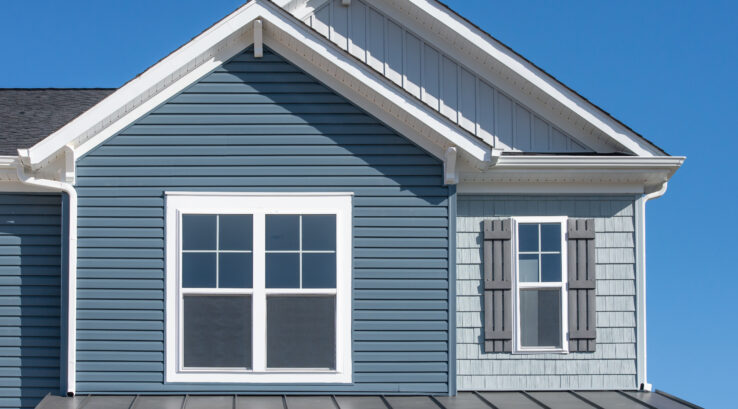You’re looking to reface your home’s exterior and exploring your options. When you consider its affordability, options and ease of maintenance, it is understandable why vinyl is one of the most popular options. However, there are a few factors to consider when choosing your next siding material. Is vinyl siding worth it? Here is a list of the pros and cons associated with vinyl siding.
Vinyl Siding Does Not Need to Be Repainted
Unlike many other materials like stucco and fiber cement that require a coat of paint, vinyl siding comes with color already baked in. This is a major benefit because it does not require the upkeep that other materials do to keep their color from chipping or cracking. Vinyl also comes in a wide array of colors to match your home’s exterior.
Vinyl Siding Is Low Maintenance
Another benefit to vinyl coming pre-colored is that there is no chipping or peeling of paint, and it won’t need to be repainted like other materials. It requires little to no maintenance, and its smooth surface also makes it easy to remove any dust or debris by rinsing with a garden hose.
Vinyl Siding is Inexpensive
Vinyl siding is inexpensive compared to other materials like stucco. Vinyl is composed of thin sheets of PVC, also known as polyvinyl chloride, that lock together in a lined pattern and is generally lightweight and durable.
Vinyl Siding Comes in a Variety of Styles
Vinyl siding has evolved over the years and now homeowners can choose an application that mimics wood shakes or layered to give the appearance of shingles in addition to a traditional horizontal plank installation.
Vinyl Siding can be Applied to a Variety of Architectural Shapes
Your home may have unique peaks or rounded turrets. Vinyl siding has the ability to be layered to fit odd shapes and challenging architectural, so it is a great option for homes of all different styles. Along with all siding materials, vinyl does have a few cons to consider when making your decision.
Vinyl Siding’s Color Can Fade
Depending on your area’s humidity and other environmental factors, vinyl’s color can fade over time, and you can expect darker colored vinyl to fade more quickly than light colors. Good quality vinyl siding has UV protection to help reduce fading over time. Vinyl siding can last as long as 40 years with regular maintenance, but will need to be replaced eventually to maintain your home’s value.
Vinyl Siding Can’t Be Self-Installed
Vinyl may be lightweight, but it should still be installed by a professional to ensure it’s installed properly and is energy efficient. Siding that isn’t properly installed can result in water damage, energy loss and other damaging factors in the long run.
Vinyl Can Be Subject to Your Homeowner’s Association
Check with your homeowners’ association before installing vinyl. Some will have regulations surrounding the façade of your home, especially if you live in an historic district.
Thompson Creek’s vinyl siding is made from the highest quality materials and is installed with precision by experts to ensure it is resistant to moisture and general wear and tear. Our no-hassle warranty also ensures your siding for up to 50 years giving you peace of mind and making your new siding a great long-term investment for your home.


